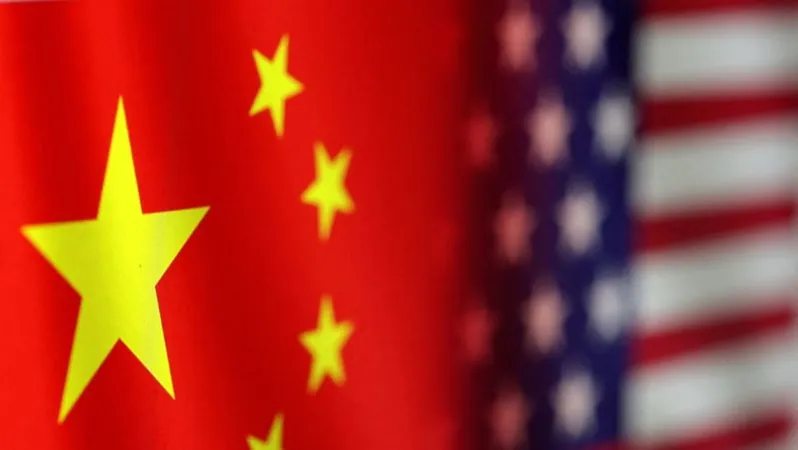
Senators Demand Action Against Chinese Cyber Threats Following Salt Typhoon Hacking Scandal
2024-12-11
Author: Mei
Introduction
In a startling revelation, U.S. senators emphasized the urgent need for enhanced cybersecurity measures in the wake of China’s espionage efforts, dubbed “Salt Typhoon.” During a crucial hearing in Washington on December 11, senators voiced their concerns about the recent massive hack targeting American telecommunications firms, which reportedly has monumental implications for national security.
Senator Concerns
Senator Ben Ray Lujan, a Democrat and chair of a telecom subcommittee, labeled this breach as potentially “the largest telecommunications hack in our nation’s history.” He remarked, “While we’re still uncovering the full extent of the damage caused by the Salt Typhoon hacks, it’s clear that we must bolster our defenses to thwart future attacks.”
Republican Senator Ted Cruz echoed these sentiments, warning that this incident is unlikely to be the last. He insisted on the need to address vulnerabilities in the nation’s communication networks, stating, “We must plug any vulnerabilities in communications networks” to safeguard against future threats from state-sponsored actors.
Government Response
Evidently, this hacking incident has escalated the urgency within U.S. government agencies, leading to multiple classified briefings for both the Senate and House of Representatives. Following these briefings, Federal Communications Commission (FCC) Chairwoman Jessica Rosenworcel proposed an annual certification requirement for telecom companies, mandating they demonstrate a comprehensive cyber defense strategy.
Calls for Proactive Measures
Senator Dan Sullivan raised an important point during the discussions, questioning the predominantly defensive focus of U.S. officials. He asked, “What about offense? What about deterrence?” highlighting a push for a more proactive approach in cybersecurity.
Extent of Hacking
According to the White House, at least eight telecommunication companies among others in the U.S. had their infrastructures compromised in this significant spy operation, resulting in the theft of vast amounts of metadata related to American citizens’ calls.
Chinese Officials Response
In response to these threats, Chinese officials have strongly dismissed the allegations, labeling them as misinformation while maintaining their stance against all forms of cyberattacks and theft.
Legislative Actions
The ripple effect of the Salt Typhoon incident was also felt in Congress, which is preparing to vote on an annual defense bill that allocates nearly $3.1 billion to assist U.S. telecom companies in removing equipment manufactured by Chinese firms Huawei and ZTE from America’s wireless networks. However, estimates by the FCC suggest that the total cost of this “rip and replace” initiative could reach nearly $5 billion, with Congress having previously approved only $1.9 billion for this purpose.
Impact on Major Telecoms
The implications of this incident are profound, with reports indicating that major players like Verizon, AT&T, and Lumen were among those targeted, and critical data, including telephone audio intercepts and extensive call records, were compromised.
Conclusion
As the threat landscape evolves, it remains paramount for U.S. lawmakers and technology leaders to stay vigilant, strengthening defenses against an increasingly sophisticated cyber warfare landscape that could jeopardize national security and the privacy of millions.

 Brasil (PT)
Brasil (PT)
 Canada (EN)
Canada (EN)
 Chile (ES)
Chile (ES)
 España (ES)
España (ES)
 France (FR)
France (FR)
 Hong Kong (EN)
Hong Kong (EN)
 Italia (IT)
Italia (IT)
 日本 (JA)
日本 (JA)
 Magyarország (HU)
Magyarország (HU)
 Norge (NO)
Norge (NO)
 Polska (PL)
Polska (PL)
 Schweiz (DE)
Schweiz (DE)
 Singapore (EN)
Singapore (EN)
 Sverige (SV)
Sverige (SV)
 Suomi (FI)
Suomi (FI)
 Türkiye (TR)
Türkiye (TR)